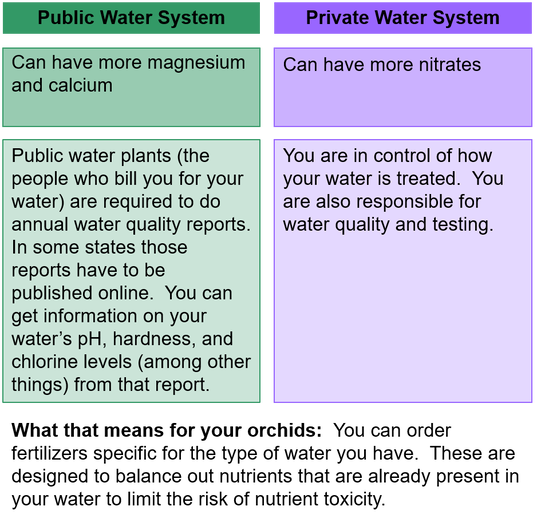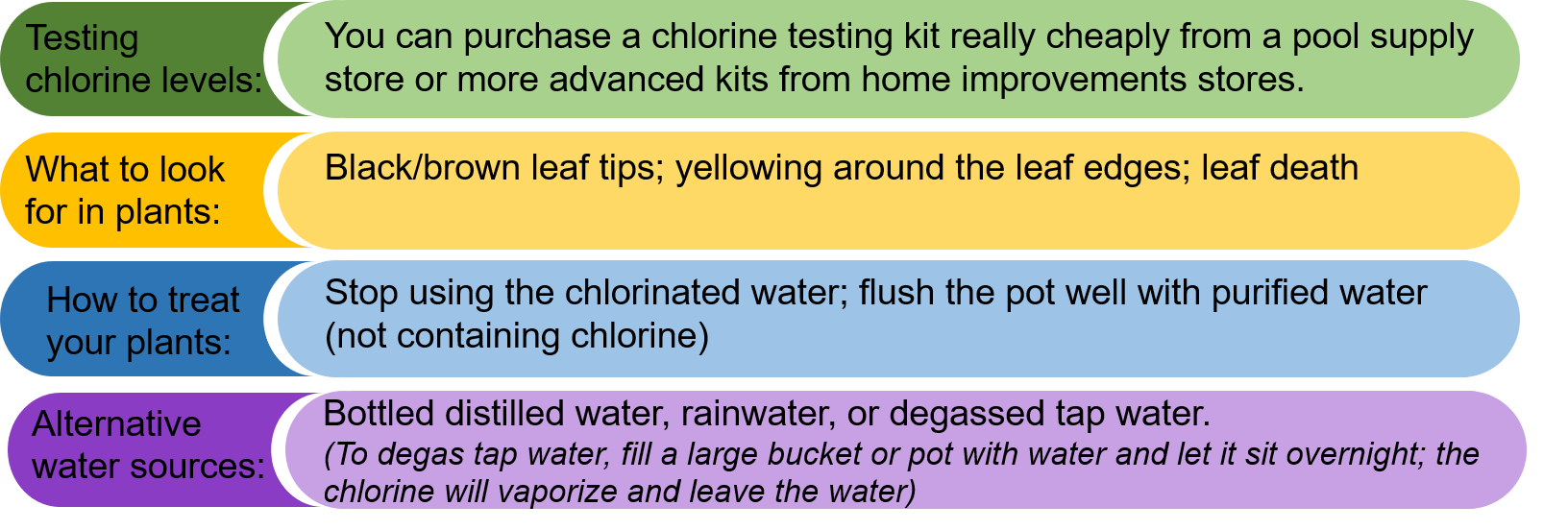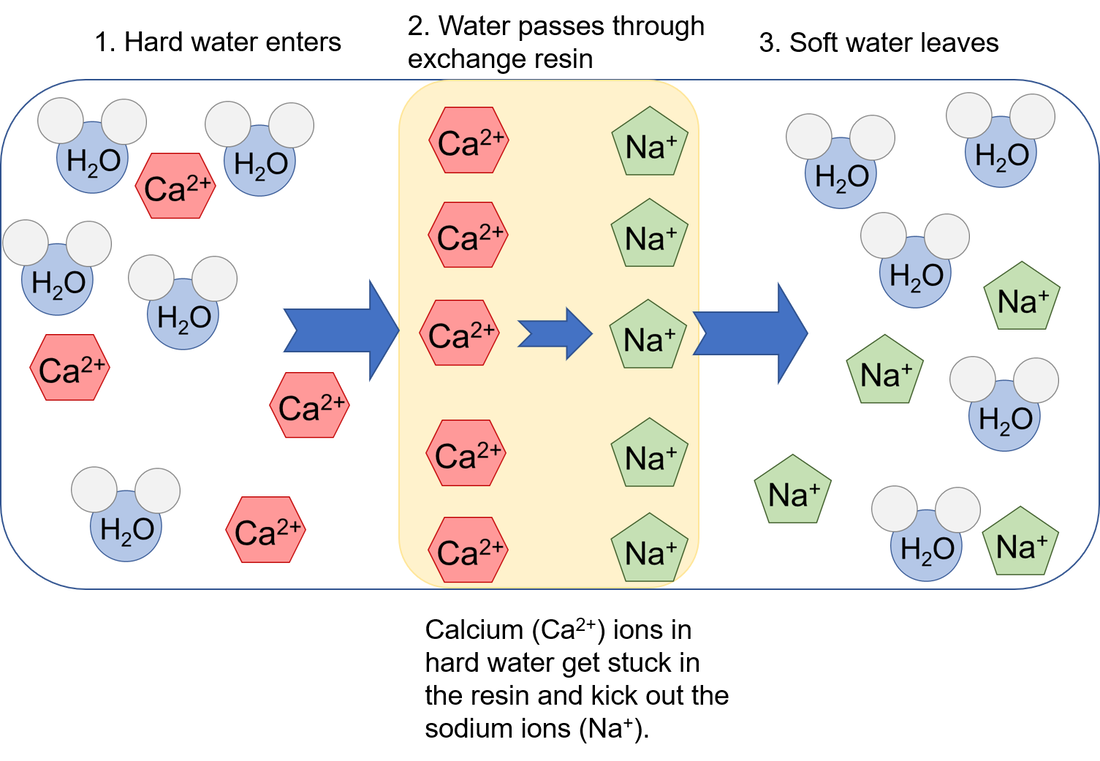|
In this second post leading up to transplanting orchids, I thought I’d cover a less commonly recognized problem for orchids—water quality. I, personally, never put too much thought into this topic until recently. If you’re like me, you probably think that if the water is good enough for you to drink, it’s good enough for the orchids, too. Well, that’s not always the case. In this post, I’ll cover a couple things you might want to check and keep in mind when watering your orchids. This table is just a quick overview of the topics covered in this post. For a more detailed discussion, read on! 1. Public vs Private Water Systems2. Water DecontaminationPublic and private water systems have varying methods of purifying and decontaminating water before human use. For drinking water, some methods include:
While filtering and UV-sterilization don’t have as big of a role in plant health, chlorine can be an issue. As I said earlier, the treatments done to our drinking water are regulated at the level of human health. While the water is safe for us to drink, it may not be good for our plants. 3. Hard vs. Soft WaterIf you’re a homeowner, you’ve probably heard of hard and soft water before. Hard water contains fairly high levels of calcium, while soft water does not. The calcium in hard water tends to cause scale build up in water pipes that damages the pipes over time. As a result, public and private water facilities will often manually soften the water by exchanging the calcium ions for sodium ions. At the concentrations we’re talking about, neither the calcium nor sodium ions are a health issue for humans, but they can cause problems for houseplants.
As I discussed above, there are fertilizers designed for hard water (that provide less calcium to make up for the calcium already present in the water). However, the sodium can become a problem because it is not considered essential to plant growth and can become toxic. Orchids, especially, are sensitive to excess salt build up, like sodium chloride. What to look for: Is your water hard, naturally soft, or manually softened?
2 Comments
2/11/2020 11:08:46 pm
When I was a student, our teachers have taught us how to take care of flowers, particularly the orchids. Well, I must say that it is one of my favorite flowers because it's easy to take care of. I know that I have forgotten this topic already, that's why I want to thank you for all the things you have reminded us, especially the ones about the orchids. It may be complicated for some, especially for those who do not love plants. But once they knew about it, I am sure that they start loving the craft!
Reply
Leave a Reply. |
AuthorJen Schmidt is a PhD graduate from Cornell University who, with the help of her mother (Barb), is turning into a crazy plant lady at a young age. Archives
September 2019
Social Media
|






 RSS Feed
RSS Feed